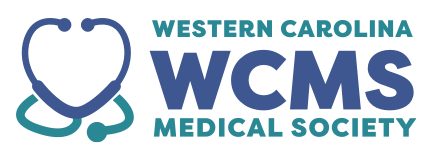BCHHS Public Health Alert – April 28, 2023
We are seeing an increase in varicella in children in Buncombe County.
- Please report all cases of suspected or confirmed varicella in Buncombe County residents to our Communicable Disease staff within 24 hours (phone number 828-250-5109).
- Please collect specimens from skin lesions (vesicular fluid, crusts, or scrapings of maculopapular lesions) for PCR testing to confirm the diagnosis if you are uncertain. More information on specimen collection is found below.
Varicella (chickenpox) infections arise from time to time in individuals in our county, and we know from experience that in some of our communities with low vaccination rates, a case of varicella can turn into an outbreak quickly. Rapid case identification is critical for the initiation of public health action and outbreak control, especially when cases occur in childcare centers, schools, and other group settings. In light of this, Buncombe County Public Health requests your ongoing collaboration in diagnosing and reporting individuals with varicella. Please remember that as of July 1, 2020, varicella cases and deaths are reportable within 24 hours to your local health department.
What we tell parents/staff
When BCHHS CD staff become aware of a varicella infection in a student or staff member at a local school or childcare facility, we provide the school/facility administrator with letters notifying staff and parents of their/their child’s possible exposure to varicella. The letter provides the following information:
- Varicella is very easily passed from one person to another.
- Although it is usually a mild illness, it often causes children and their parents to miss days at childcare, school, and work.
- In some people – especially children younger than 1 year of age, adolescents, adults, those with weakened immune systems, and pregnant persons – varicella may cause more serious illness.
- Even healthy children and adults can develop serious complications from varicella.
- They/their child could get varicella if they have not been immunized against varicella or have not had varicella before.
- It is also possible for individuals who have been fully immunized against varicella or who have had varicella previously to get a milder case of varicella if they are exposed to varicella again.
- If they/their child has symptoms of varicella, they should stay home and call their healthcare provider. Calling ahead helps prevent spread of infection to high-risk individuals who may be in the provider’s office.
- If they have varicella, they must stay home until all of their sores have crusted over and they feel better.
When we see more than 1 case of varicella in a school, facility, or other group setting, we also notify the staff and parents that once 5 or more cases of varicella are diagnosed in that setting, it is a varicella outbreak. We encourage them to take action to ensure they/their children have proof of immunity to varicella as CDC guidance states that during an outbreak, children or staff without proof of immunity to varicella should be excluded from the outbreak setting until 21 days after their last exposure. Proof of immunity to chickenpox can be demonstrated in one (1) of the following ways:
- Documentation of 2 doses of the varicella vaccine (or 1 dose if not yet in kindergarten)
- Signed documentation from a healthcare provider (physician, nurse practitioner, or physician assistant) verifying that the child has a history of typical chickenpox illness or herpes zoster (shingles)
- Blood test results that immunity to chickenpox
- Laboratory confirmation of varicella or herpes zoster illness (e.g., testing of skin lesions that shows presence of varicella zoster virus or a positive test for varicella-zoster IgM antibody when a varicella-like rash is present)
- Being born in the US before 1980 (does not count as proof if pregnant or immunocompromised)
Recommendations for healthcare providers
If you are contacted by a parent or individual who thinks that they/their child has varicella illness, we ask that you take the following actions:
- Conduct a clinical assessment following appropriate precautions.
- Collect appropriate specimens for laboratory testing if needed to confirm the diagnosis.
- Varicella in vaccinated individuals (breakthrough varicella) can be difficult to diagnose. Please review the information on the CDC website, which includes photos and infographics.
- The preferred lab test to confirm breakthrough varicella is a PCR test for the presence of viral DNA in skin lesion specimens – vesicular fluid, crusts, or scrapings of maculopapular lesions. Information on specimen collection can be found here.
- While the webpage mentions sending the specimen to the CDC, this is not necessary as LabCorp, Quest, and other commercial labs offer this test.
- If you lack the ability to have this test performed by your lab partner, we may be able to facilitate getting the specimen sent to the NC State Laboratory of Public Health.
- I encourage you to determine proactively how your office would conduct varicella-zoster virus PCR testing of skin lesions should the need arise.
- Report the suspected or confirmed varicella infection to your local health department within 24 hours.
Additionally, of course, please continue to encourage vaccination against varicella and other vaccine preventable infections.
Buncombe County Communicable Disease staff are available to answer your questions 24/7, including on weekends and holidays, by calling 828-250-5109. Please don’t hesitate to reach out to them should you have any concerns or questions about possible varicella infection and recommended lab testing.

